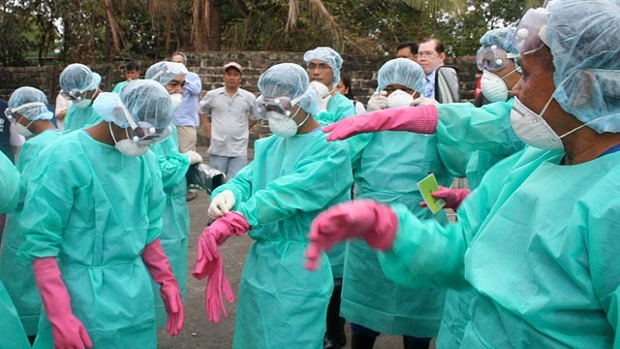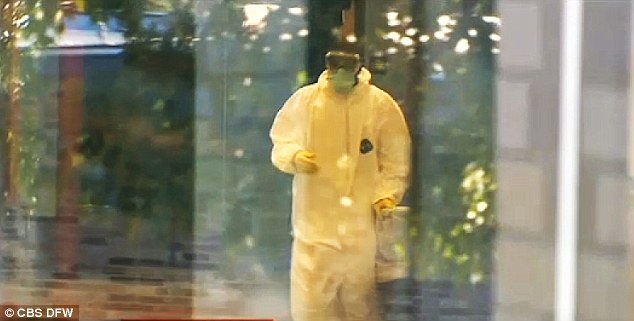Wanted: Far-sighted African leadership against Ebola

Akong Charles Ndika Correspondent
Few emergencies in modern history have accumulated an endless list of frightening superlatives in such a short period of time. Within a couple of months, the West African Ebola virus outbreak (EVO) has been qualified as: public health emergency of international concern, extraordinary event, uncontrollable, fatally inadequate, exponential in growth, unprecedented, catastrophic, worst ever and greatest peace time threat. Since the outbreak ten months ago, it is only now that the international community seems to wake up albeit in panic to the ravaging scale of the epidemic.
The response so far has revealed an epic failure of collective actions at the global level for addressing African health challenges. But a lack of far-sighted leadership by Africa has not only mishandled the epidemic but also squandered a chance to show the world that the continent is capable of holding its act together, however terrifying the challenge may be.
African countries both individually and collectively have displayed solidarity in reverse. Without a doubt, more could have been done by the countries at the epicentre of the outbreak — Guinea, Sierra Leone and Liberia — to contain the virus from getting out of control. A recent article in the top rated New England Journal of Medicine notes that the exceptional scale of the outbreak is man-made and not wickedness of the virus (Bruce etal, 2014). It took four months, for example, since the first confirmed case of the outbreak in Guéckédou, a district in Guinea, to be reported to the World Health Organisation and public health measures mobilised to halt its spread.
But few African countries could have done better. In a recent statement at a regional health ministers meeting in Nairobi, WHO noted that only Algeria and Ethiopia have the minimum required capacity to effectively deal with an outbreak of the scale of West Africa.
Yet most African countries were the first to cast a stone of stigma at the affected countries. Ebola virus outbreak has unleashed a dark side of Africa, turning on its head the narrative of a continent joined together in an unprecedented match forward to economic renaissance. While it is understandable that the reaction of any government in the face of a highly contagious health crisis like EVO is to protect its citizens first, but without a rational evidence-led approach, the unintended consequences of responses could even be worse than the disease itself.
Not all African countries have been indifferent though. In the name of solidarity, some have provided token financial, human and material support to the virus-stricken countries. But curiously, most have offered assistance with one hand while taking away the rug from under the feet of afflicted countries — making it extremely difficult for them to cope, on the other hand.
Kenya, a major air bridge to the Ebola-hit countries, provided more than $2 million as well as health personnel, while at the same time banned flights from Nairobi to those hardest-hit countries. Those same countries are the ones going around blaming the West for the failed collective response to the disaster.
The consequences of paranoia have not only limited critical emergency supplies, but more so taken the wind out of much needed economic growth. In a recent report, the World Bank reckons that fear-based actions impact far more on recovery than the virus itself.
The report infers that panic-inspired runaway behaviour could account for up to 90 percent of the economic effects of the outbreak which is projected to wipe off over $805 million on average from the three hardest hit countries combined, in the worst case scenario by 2015 (World Bank , 2014). This is almost what the UN urgently requests to bring the virus under control.
Too little too late
So far, myopia has marked responses in countries. But even more surprisingly, at the continental level, leadership has been a no-show. While WHO, as the world’s health agency with the primary responsibility for sounding the alarm and mobilising global collective actions against the epidemic has failed fatally, with little far-sight, the African Union could have better anticipated proactive measures to avert or mitigate the secondary impact of the outbreak, in particular holding the rope against potential regional disintegration tendencies. Since the outbreak was formally announced in March, it took almost five months for the African Union to release an official statement on Ebola.
Continental diplomacy in fact has failed to even catch up, talk less of influence or lead politics at the country level. No country has lifted the ineffective blanket travel bans. To be fair, the African Union has reached out to affected countries albeit with modest support in comparison to the needs and scale of the outbreak. The Commission has pledged financial as well as human and material resources to the fight against Ebola. One million dollars has been pledged to the fight and a team of over 30 military and non-military medical personnel deployed to the affected countries. But most importantly, the Commission has reconfigured its crisis fighting toolkit, to include response to health emergencies, of state-collapsing dimension. It remains unclear whether the change was just an add-on or far reaching enough to integrate human security dimensions better in the African Peace and Security Architecture.
Lessons unlearned
Against an exponential spread as well as upwardly revised case fatality rate, a jargon, Africa cannot afford to improvise its way out of the crisis. The virus may live with us longer than imagined. Recent research has warned of a risk of continued expansion of the outbreak and the prospect of the virus becoming endemic — able to be transmitted at low levels in humans. Given the changing nature of the virus, without a visible forward-looking leadership, Africa would further mishandle the outbreak at scale comparable to the HIV/AIDS.
Strategic priorities like potential access to experimental therapies and drugs, intellectual property rights seem to have been pushed to the back-burner, with likely catastrophic consequences. While life-saving treatments for HIV/AIDS were around during the 1980s, it took more than two decades for African countries to wake up and push those issues up the international security agenda, at an appalling cost of over 20 million lives lost to the disease, because of unaffordable drugs (World Health Organisation, 2000). That is almost the population of the three most affected Ebola countries.
Stepping up the game
A massive surge in resources both human, material and financial is required to bring the outbreak under control, and the international community seems to be waking up to the challenge. But without a strategic approach, Africa is not going to leverage its own resources optimally in addition to international support, and do so in a way that could immediately bring a halt to the spread as well as prevent future outbreaks.
And because of a dearth in continental leadership, Africa is unable to put in place mechanisms that could prevent the external militarisation of responses to the epidemic from creeping into other important policy spheres like economy or upset the regional geopolitical balance.
Africa, indeed, cannot afford to be a bystander in the setting of global health security norms. — Pambazuka
Akong Charles Ndika is Global Affairs Blogger.










Comments